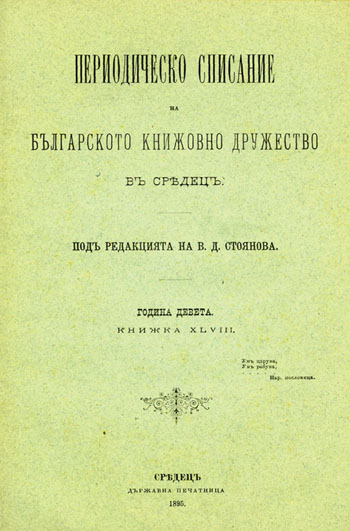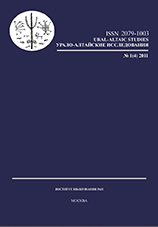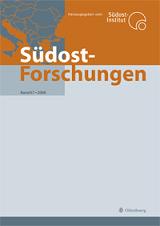
We kindly inform you that, as long as the subject affiliation of our 300.000+ articles is in progress, you might get unsufficient or no results on your third level or second level search. In this case, please broaden your search criteria.

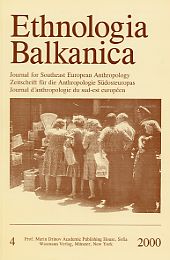
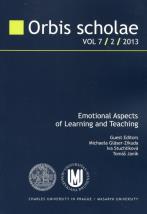
The introductory paper gives an overview of the international research on emotions in learning and teaching. It addresses various theoretical, contextual, practical, and empirical aspects. In the first part, the paper reflects the core concept of emotions with particular emphasis on academic and achievement emotions. Next, it reviews the impact of emotions on students’ learning and achievement, as well as on the relation between emotions and instructional quality. The final part deals with academic emotions viewed in the context of different school subjects. In general, this introductory paper emphasizes the relevance of emotions for education, especially for learning and teaching in school.
More...



It is well documented in educational research that instruction in science − including Physics − is connected with rather negative emotions of students. It becomes especially apparent when considering the gender differences. Therefore, an important question is whether and how achievement emotions of boys and girls in Physics may be positively influenced. The aim of this study is to analyze firstly the differences regarding positive and negative emotions of boys and girls in Physics instruction. Secondly, a quasi-experimental intervention study has been carried out to test whether and how girls’ and boys’ emotions may be influenced by the application of a portfolio approach in Physics instruction. Covariance and multivariate analyses were carried out to test the hypothesized effects of the intervention. The Physics instruction focused on the topic of electricity. The research sample consisted of N = 161 students from eight 8th grade classrooms of three grammar schools in Germany which were divided into treatment and control groups randomly. Our study confirmed that boys generally experience more positive achievement emotions in Physics than girls, whereas girls showed higher level of anxiety and boredom than boys. The hypothesized effects of the portfolio intervention were only partly confirmed. The differences between boys and girls regarding their well-being in Physics instruction before the intervention have been slightly reduced by the application of the portfolio. Girls’ well-being in the treatment group increased after the application of a portfolio compared to girls in the control group. As expected, self-concept and interest have been revealed as significant covariates influencing students’ achievement emotions. Limitations of the study as well as implications for instruction are discussed. It is suggested that a portfolio represents a promising approach for the equalization of gender differences regarding achievement emotions in Physics.
More...

Based on the theoretical perspective of self-determination, this study examined the effects of basic need fulfillment (relatedness/competence/autonomy) on students’ school enjoyment before and after the transition from primary to secondary school. Furthermore, the academic and social impact of control beliefs on the emotions triggered by the upcoming transition was tested. The sample consisted of 63 students who filled out questionnaires at different time points before (grade 4; students between the ages of 9 and 10) and after (grade 5) the primary-secondary transition. The results highlight the importance of a positive teacher-student relationship as well as positive relationships amongst the students themselves for students’ school enjoyment before and after the transition. In terms of the emotions evoked by the upcoming transition, the results reveal that students with higher academic self-concept experienced more positive emotions than students with lower academic self-concept. From these findings, it can be concluded that positive relationships and the belief in one’s own academic capabilities can contribute to the likelihood of experiencing the transition to secondary school as an event accompanied by positive emotions such as joy and excitement rather than a stressful or threatening life-event.
More...
Entry into teaching is generally recognised as a crucial phase in the professional life of a teacher. The initial years at school can be a critical part of a teacher’s career having long-term implications for teacher effectiveness, job satisfaction and also career length. The problem of a high drop-out rate of novice teachers has gradually become a global issue. Therefore, teacher professional socialisation as a specific field within a larger body of research into occupational socialisation has received increased attention in the last decades. The paper presents a brief overview of teacher socialisation research paradigms within which both the anticipatory socialisation (pre-service) and the workplace (organisational) socalisation are investigated. Further on, the focus is specifically on the latter and on the factors that determine the processes of workplace socialisation of novice teachers. While recognising the significance of subjective determinants, we aim to survey mainly the objective ones in this article. Three layers of social context are addressed: interactive (pupils and classrooms), institutional (school culture, staff, and leadership) and cultural (local social community as well as broader economic, political and cultural environment).
More...
Proceedings of the 43rd annual meeting of the association of transylvanian studies and the 8th international postgraduate colloquium on transylvanian studies.
More...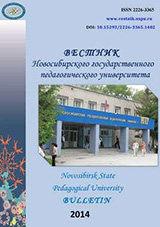
The authors reveal the concept of “educational support”, since the concepts of “commu-nication” and “interaction”. The analysis of these concepts in terms of classical pedagogy. The author traces the relationship of the conventional concepts of a research question relating to his doctoral dissertation on the examples of social life and activities of educational organizations, in particular the example of Polytechnic College. In the article the examples of interaction be-tween educational institutions, common and distinctive requirements for the operation of schools and colleges. Are examples of interaction Polytechnic College through educational support at the level of the college, the professional community, and society as a whole. In this paper, the authors use the methods of analysis, observation, analogy, generalizations. The article gives examples of types of support in college, provides evidence to support their effectiveness and efficiency. The authors analyze the materials of scientific-practical con-ference dedicated to the 35th anniversary of the College, on the topic of dissertation research. On the example of speeches colleagues scientific-practical conference authors prove the con-cept of “educational support” and its importance in the activities of an educational organiza-tion, and draw analogies with cited sources. The article has a distinct practical and may be of interest to practitioners of professional employees of educational institutions.
More...
The article presents an overview of work on science metric databases Web of Science and Scopus over approximately the past 10 years on the effects of the Chinese gymnastics Taijiquan on the physical and psychological state of the person. Stand out the following areas of research gymnastics Taijiquan: impact on the daily productivity and overall psychological state, including problems with attention, hyperactivity, stress, depression; impact on the cardiovascular system (heart rate, blood pressure), and reme-dial actions in ischemic heart disease, congestive heart failure, recovering from a stroke. In ad-dition, the study and the positive impact of Taijiquan exercises for pain syndromes of the muscu-loskeletal system: fibromyalgia, osteoarthritis and rheumatoid arthritis; experience positive changes autoimmune condition with osteoporosis and diabetes, and immune status, in particu-lar the regulation of immune diseases HIV. Overall, more than 70 % of the works analyzed by science metric databases Web of Sci-ence and Scopus, focused on three areas of research gymnastics Taijiquan: positive effects on the immune system, cardiovascular training and improving physical qualities.
More...
This study aimed to show theoretical aspects of forming the methodology and projective methodics for the methodical competence in Geography of students of pedagogical university. The theoretical peculiarities of competence approach in educational training of the teacher of Geography are revealed: a definition of “methodical competence”, stages and specifics of form-ing the methodical competence of students in Geography in BA and MA educational systems. The author’s materials which show the projective methodics for the competence-based educational program of the course “Technology of development of the critical thinking” for stu-dents in Geography and theoretical recommendation on assessment of competencies at State Final Certification are presented. The author studies a positive experience of study academic discipline “Methodics of train-ing and bringing-up” in Geography which is based on the competence approach in BA and MA. This approach can be useful for university teachers during the process of improvement of edu-cational program according to requirements of the Federal Educational Standards.
More...

